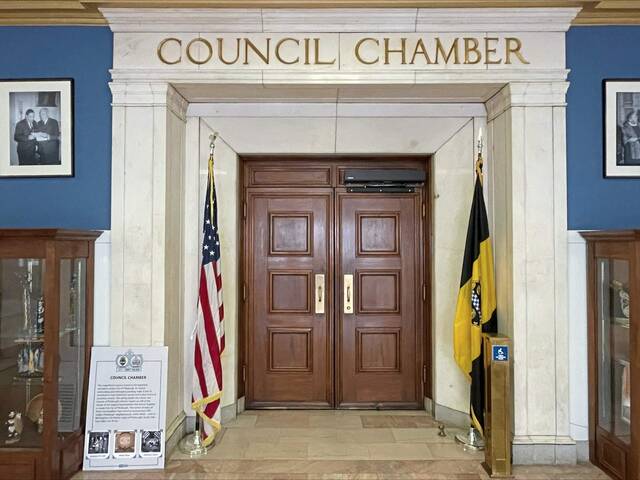https://triblive.com/local/pittsburgh-councilwoman-wants-to-crack-down-on-airbnb-vrbo-rentals/
Pittsburgh councilwoman wants to crack down on Airbnb, Vrbo rentals

Pittsburgh City Councilwoman Deb Gross on Tuesday introduced legislation that would create new regulations for short-term rentals, like those through Airbnb or Vrbo.
The bill would permit short-term rental units solely for overnight accommodations for registered guests. People could not use them to host “public assemblies, recreational entertainment, or hospitality activities.”
The measure would allow no more than two short-term rental units in buildings with 20 or fewer units and no more than five in buildings with more than 20 units in areas where short-term rentals are generally permitted.
In areas where short-term rentals are allowed only by a special exception, a single lot would be able to have only one short-term rental.
People operating the short-term rentals would need to get a license from the city.
Gross, D-Highland Park, told TribLive the measure was “long overdue,” as officials have long sought to better regulate the short-term rentals that have become popular alternatives to traditional hotels.
“The goal is really to prevent more of our housing stock from being gobbled up by corporations so it’s available for people to actually live in,” Gross said.
Olga George, a spokeswoman for Mayor Ed Gainey, said short term rental operators are “turning homes into unlicensed hotels.”
“The Gainey administration supports efforts to establish enforceable rules to protect our residents and address the many concerns presented by unregulated STRs (short-term rentals), such as rising rents, driving displacement, and creating public health, safety and neighborhood nuisance concerns,” she wrote in a statement.
The measure will come before council for further discussion next week.
Gross on Tuesday also formally introduced a zoning package — initially pitched by Mayor Ed Gainey — that would require any new development with 20 or more units to designate at least 10% of units as affordable housing for people making no more than half of the area median income.
Council last week voted down a competing measure that would have allowed individual neighborhoods to decide whether they wanted to participate in the city’s inclusionary zoning program.
The mayor’s zoning package could not be formally introduced until that competing measure is taken off the table.
Inclusionary zoning has sparked fierce debate among council members, housing advocates and the public. The goal of inclusionary zoning is to bolster the city’s supply of affordable housing, but some detractors worry it could deter developers.
The inclusionary zoning package Gross introduced Tuesday also allows accessory dwelling units and eliminates parking minimums.
George in a statement said the Gainey administration believes the zoning package “is a vital step towards achieving real housing justice.”
Copyright ©2026— Trib Total Media, LLC (TribLIVE.com)
